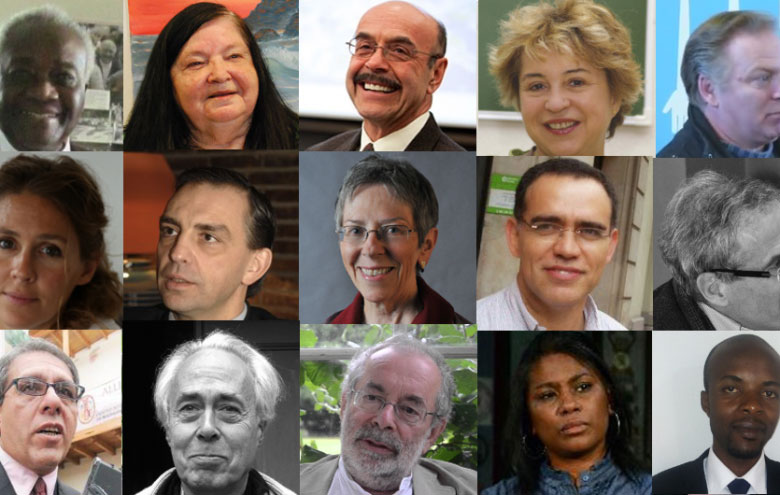Event: The Ethics of Research on Poverty

Thursday, April 12, 2018
10:00 am New York | 3:00 pm London | 5:00 pm Cape Town
Registration is required for this event, click here to register.
The Ethics of Research on Poverty
This is the first event in our three-part webinar series: Rethinking our World from the Perspective of Poverty with Joseph Wresinski.
“Of comprehensive knowledge about poverty and social exclusion – knowledge meant to inform, to explain, and to lead people to action – academic research will never be more than one component among others. It is the information component, partially explanatory, and thus lifeless. It will remain lifeless as long as two other components of knowledge are missing. These two autonomous and complementary components, which will add life and meaning, are:
– the knowledge which those in poverty and the excluded have, from their first-hand experience, of the twin realities of poverty and the surrounding world which imposes poverty on them; and
– the knowledge of those who work among and with these victims in places of poverty and social exclusion.”
– Joseph Wresinski – “A Knowledge that Leads to Action”, UNESCO, 1980
These challenging words, spoken by Joseph Wresinski, go straight to the heart of the matter: the most fundamental of struggles related to building knowledge to liberate people from poverty. Marginalized communities are regularly asked by researchers to give consent to research being undertaken in and about their communities. However, being invited to have meaningful input, participation in and direct benefits from the research process is the exception rather than the rule. Authentic inclusion of those most marginalized by society in the research process is an ethical proposition, requiring reciprocity between those directly affected and researchers seeking to learn from and about these same communities.
Using examples offered by activists and academics from South Africa, France, and the US, this webinar will explore the ethics of carrying out research on poverty, as well as methodological and practical approaches for nonprofit and academic organizations to produce knowledge involving people living in poverty. We will reflect upon the ethical dilemmas common for many researchers in the social sciences, and suggest pathways for meaningful inclusion, participation and power sharing with those most directly affected throughout the process of building knowledge.
Presenters:
Stacy Randell-Shaheen (USA) is the Director of the Adult Learning Center at North Shore Community College in Danvers, MA, where she helps prepare students of all ages who did not complete high school to earn a high school credential and progress to college or advanced career training.
Bonita Bennett (South Africa) has been the director of the District Six Museum since 2008, and manager of its archive for 3 years prior to that, working with the memories of people forcibly rehoused from Cape Town’s District Six, and with that of forced removals more generally.
Donna Haig Friedman (USA) was director of UMass Boston’s Center for Social Policy for nearly 18 years. In this role, Donna led the CSP’s team in its research and evaluation work in Massachusetts and across the United States. Much of the work focused on evaluating interventions and advancing social policies aimed at preventing family homelessness.
Amelia Mallona (USA) is Assistant Professor of Education at Merrimack College in Massachusetts. Her teaching interests include courses related to life-span development and the socio-historical and cultural context where human development unfolds, such as diversity, social justice, and ethics within the educational settings.
Bruno Tardieu (France) is the Director of the International Joseph Wresinski Center for History and Research in Baillet, France. An initiative of ATD Fourth World, the Center works to collect the history of resistance of people living in extreme poverty, and undertakes research to understand how poverty can be overcome.
This event, organized in partnership with Merrimack College, builds on a discussion held in June, 2017, at the International Cultural Center of Cerisy La Salle in France, as part of the one week symposium, “Rethinking our World from the Perspective of Poverty – with Joseph Wresinski.” This landmark event brought together over 80 academics, activists in the fight against extreme poverty, and people living in poverty from 15 countries in order to discuss how extreme poverty challenges our way of thinking.

